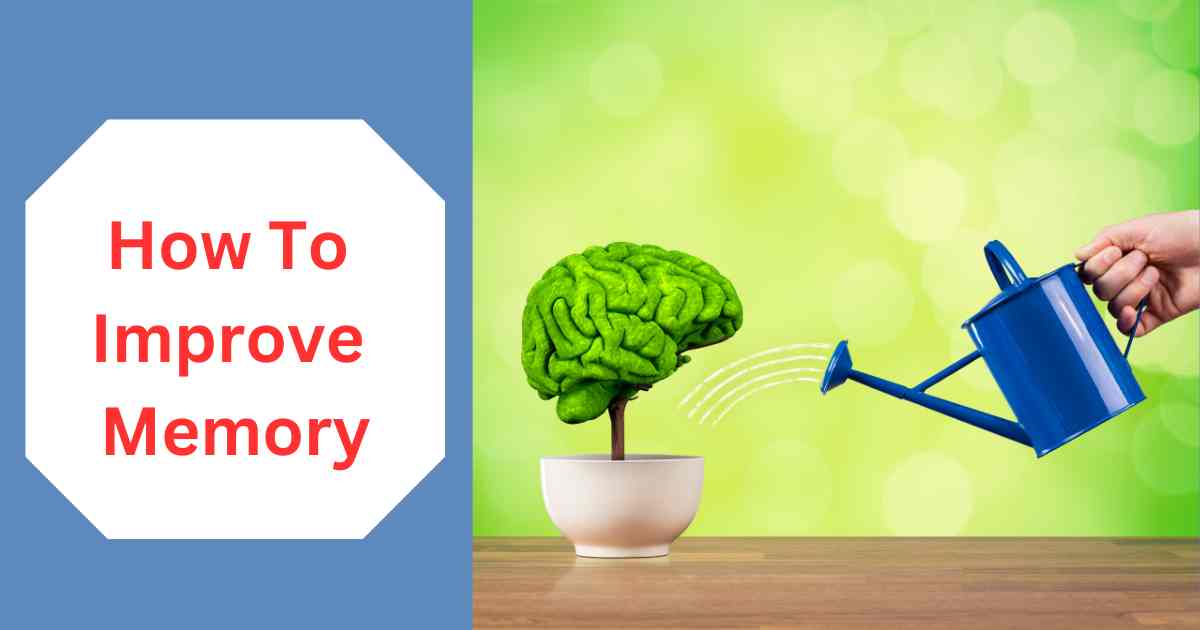Memory is a fundamental aspect of our cognitive abilities, influencing our daily lives, from remembering important tasks to recalling cherished moments. While some people may seem to have a natural gift for retaining information, the good news is that memory can be enhanced and improved through various strategies and lifestyle changes. In this article, we will explore the answers to the question of how to improve memory and optimize cognitive function.
1. Keep Learning And Stay Mentally Active
Staying mentally active is a cornerstone in the quest to improve memory. Engaging in intellectually stimulating activities, such as solving puzzles, playing strategic games, learning new skills or language, or participating in educational pursuits, keeps the brain actively involved and challenged. These activities stimulate the formation of new neural connections, encouraging neuroplasticity—the brain’s ability to adapt and grow. The cognitive effort required in mentally demanding tasks not only sharpens existing cognitive functions but also promotes the generation of new neurons in the hippocampus, a region crucial for memory and learning.
2. Stay Physically Active
Regular physical exercise has been linked to numerous health benefits, and an improved memory is one of them. Exercise increases blood flow to the entire body, including the brain, promoting the growth of new neurons and enhancing overall cognitive function. Aim for at least 150 minutes of moderate-intensity exercise per week, such as brisk walking, jogging, or cycling, to reap the memory-boosting benefits.
3. Prioritize Quality Sleep
A good night’s sleep is essential for memory consolidation. During the deep sleep stages, the brain strengthens connections between neurons, helping to solidify new memories and optimize cognitive performance. Aim for 7-9 hours of quality sleep each night by establishing a consistent sleep routine, creating a comfortable sleep environment, and avoiding stimulants like caffeine close to bedtime.
4. Maintain a Healthy Diet
Nutrient-rich foods play a crucial role in supporting brain health and memory function. Include foods rich in omega-3 fatty acids, antioxidants, and vitamins in your diet. Fatty fish, nuts, berries, and leafy greens are excellent choices. Here is our article on the best foods for brain health. Additionally, stay hydrated, as dehydration can impair cognitive function and memory.
5. Practice Mindfulness and Meditation
Mindfulness and meditation techniques have been shown to reduce stress and improve memory. Engaging in mindfulness exercises, such as deep breathing or meditation, helps calm the mind, reduce distractions, and enhance focus, all of which contribute to better memory retention.
6. Socialize and Stay Connected
Maintaining social connections is not only important for emotional well-being but also for cognitive health. Regular social interaction stimulates the brain, preventing cognitive decline and enhancing memory. Engage in meaningful conversations, participate in group activities, and nurture relationships to keep your mind sharp.
7. Practice Visualization
Create vivid mental images to help remember information. For example, create mental images or diagrams to represent concepts. Visualizing the details of a concept or associating them with familiar images can improve memory recall. This technique is especially useful when trying to remember lists or sequences.
8. Use Memory Aids
Memory aids, such as mnemonic devices and organizational tools, serve as invaluable supports in enhancing memory. These aids provide structured frameworks and strategies that make information more accessible and memorable. Mnemonic devices, for example, leverage associations, acronyms, or rhymes to facilitate the recall of complex information by linking it to familiar concepts. Organizational tools, such as calendars, to-do lists, and reminders, help individuals structure and categorize information, making it easier for the brain to store and retrieve data. These memory aids essentially act as external cues that guide the brain’s encoding and retrieval processes, contributing to more efficient and effective memory function.
9. Establish a Routine
Establishing a routine plays a crucial role in enhancing memory function by providing a structured framework that optimizes cognitive processes. When our daily activities follow a predictable pattern, our brains can efficiently allocate resources, creating a conducive environment for memory consolidation. Consistent routines anchor information within a familiar context, making it easier for the brain to encode and retrieve data.
10. Teach Others
Teaching others is a potent strategy for improving memory, as it engages multiple cognitive processes and reinforces one’s understanding of a subject. When you teach a concept to someone else, you are required to articulate and simplify complex ideas, promoting a deeper level of comprehension. This act of explaining information to others demands the retrieval of stored knowledge, strengthening neural connections associated with that information.
11. Limit Multitasking
Limiting multitasking is instrumental in improving memory as it allows the brain to focus its cognitive resources on a single task, leading to more effective information processing and retention. When we attempt to juggle multiple tasks simultaneously, our attention becomes divided, and the quality of attention dedicated to each task diminishes. This can result in a shallower processing of information, making it less likely to be stored in long-term memory.
If you want to take any memory-improving supplement, we recommend Nerodrine. In case you want to read a review of this supplement, here is our Neurodrine review.
Conclusion
Improving memory involves adopting a holistic approach that combines physical, mental, and lifestyle factors. By incorporating the above-mentioned strategies into your daily routine, you can enhance your cognitive abilities and enjoy the benefits of a sharper memory. Remember that consistency is key, and small changes over time can lead to significant improvements in memory function.

